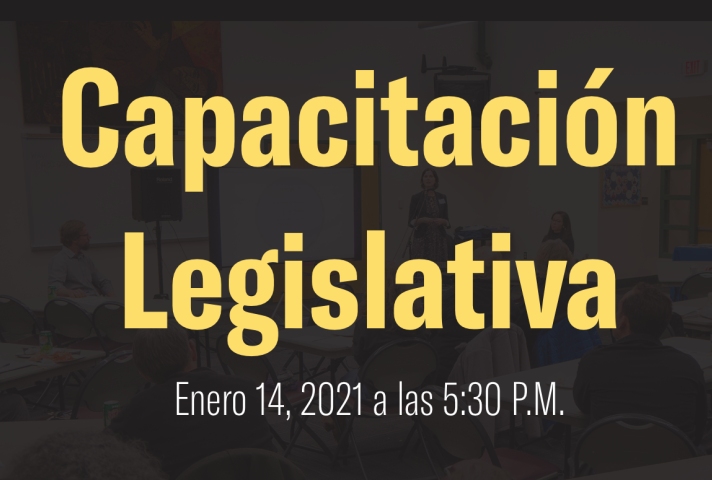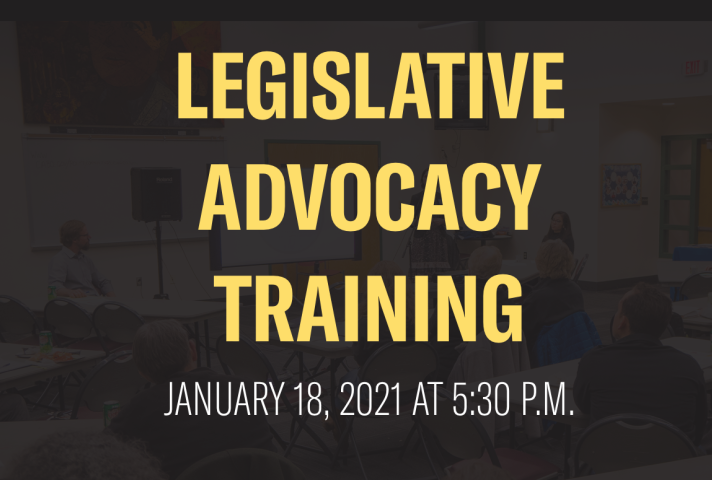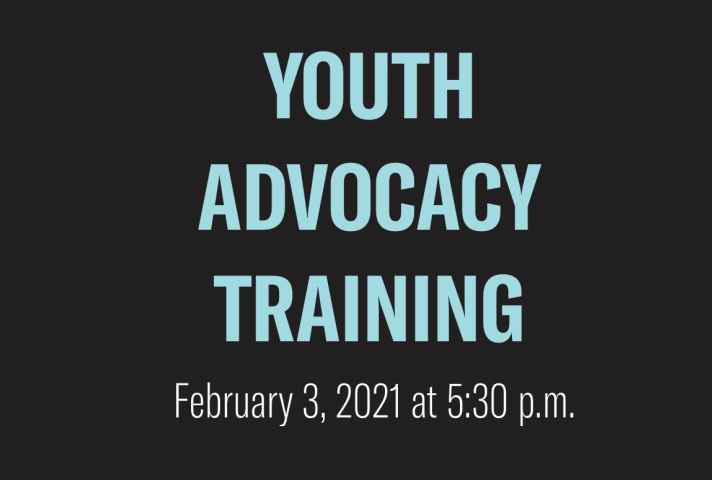Acompáñenos en una capacitación virtual de defensa legislativa para aprender cómo puede ser parte de nuestros esfuerzos para promover la justicia y proteger la libertad en nuestro estado en la próxima sesión legislativa.
Durante los eventos de capacitación, el personal de ACLU de New México proporcionará una visión general de la legislación en nuestra agenda y compartirá oportunidades para que usted pueda ayudar a dirigir la lucha con nosotros. Nuestra agenda incluye una ambiciosa reforma de ley en nuestro sistema de justicia penal, derogar una antigua prohibición del aborto que se esconde en los libros de leyes de Nuevo México y eliminar las cárceles privadas con fines de lucro notoriamente inhumanas de nuestro estado.
Las estrategias de comunicación que compartiremos con usted se basan en investigaciones de vanguardia en Nuevo México que muestran la mejor manera de tener conversaciones persuasivas sobre estos temas, ya sea con candidatos y legisladores, o alrededor de su mesa cenado con amigos y familiares. Además, lo conectaremos con una creciente red de activistas dedicados a proteger las libertades civiles en Nuevo México.
Event Date
Thursday, January 14, 2021 - 5:30pm to7:30pm
Featured image


